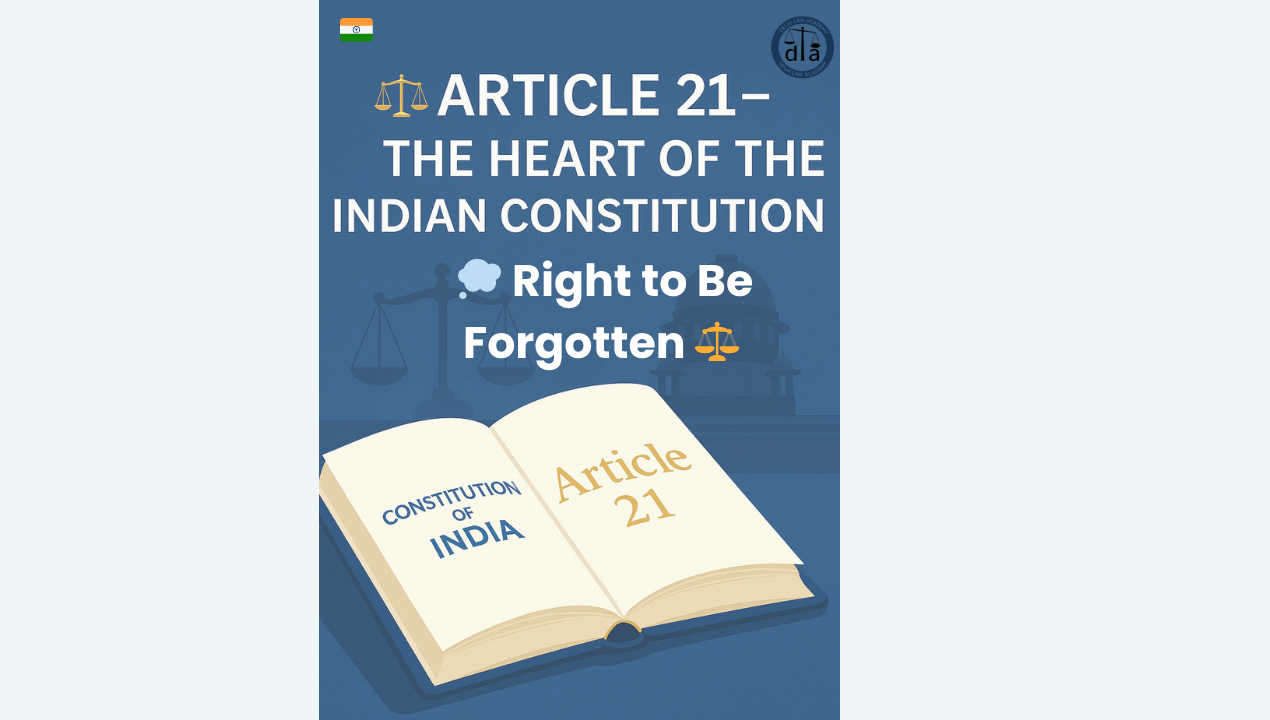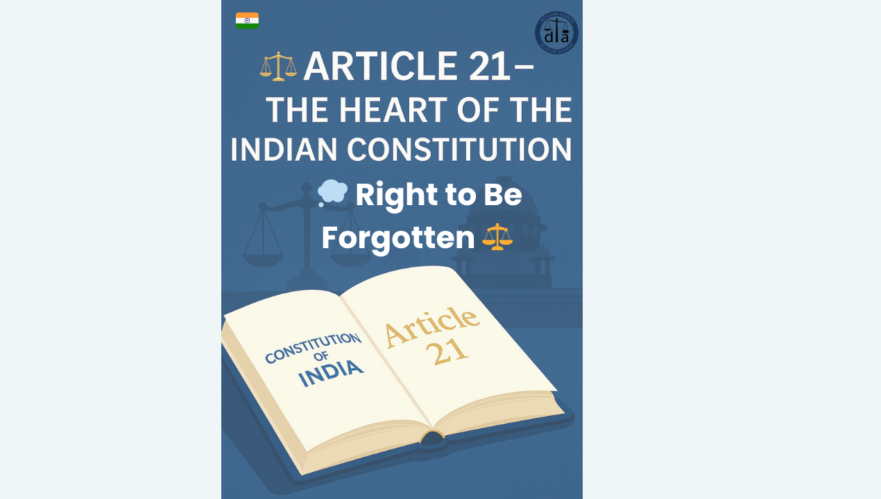
🔒 Right to Be Forgotten | Article 21 of the Indian Constitution
The Right to Be Forgotten is an evolving facet of the Right to Privacy, derived from the Right to Life under Article 21 of the Indian Constitution.
It empowers individuals to request the removal of personal information from the internet that is no longer necessary, relevant, or accurate, ensuring control over their digital identity.
📜 Constitutional Basis
The Right to Be Forgotten is not explicitly mentioned in the Constitution but arises from judicial interpretations of Article 21.
The Supreme Court, in landmark judgments, has expanded the scope of the Right to Privacy to include the right to control dissemination of personal data in the digital age.
“The right of an individual to exercise control over his personal data and to be able to control his own life also includes his right to be forgotten.”
— Justice Sanjay Kishan Kaul, Puttaswamy v. Union of India (2017)
⚖️ Judicial Recognition in India
- 🧑⚖️ K.S. Puttaswamy v. Union of India (2017) – The Supreme Court recognized the Right to Privacy as a Fundamental Right under Article 21 and acknowledged the concept of the Right to Be Forgotten.
- 💻 X v. Union of India (2017) – The Delhi High Court observed that individuals should have the right to have personal information removed from online platforms if it no longer serves a public purpose.
- 📰 Subhranshu Rout v. State of Odisha (2020) – The Orissa High Court recognized the right to be forgotten in cases involving sensitive personal data like revenge pornography.
- ⚖️ Jorawar Singh Mundy v. Union of India (2021) – The Delhi High Court directed online platforms to remove acquitted individuals’ names from case-related articles to protect their reputation and privacy.
These rulings highlight that the Right to Be Forgotten aims to balance an individual’s right to privacy with the public’s right to information.
💻 Role of Data Protection Laws
The Digital Personal Data Protection Act, 2023 provides a statutory foundation for the Right to Be Forgotten in India.
It allows individuals to request the removal, correction, or restriction of personal data once the original purpose for its use has been fulfilled.
- 🧾 Individuals can request erasure of outdated or misleading data.
- 🚫 Organizations must process such requests within a defined timeframe.
- ⚖️ Exceptions exist for journalistic, legal, and public interest information.
This legislation brings India closer to global data protection standards like the European Union’s GDPR.
🌐 International Perspective
The Right to Be Forgotten gained global attention after the Google Spain v. AEPD and Mario Costeja González (2014) case, where the European Court of Justice recognized the individual’s right to request search engines to remove outdated or irrelevant links.
India’s evolving jurisprudence draws inspiration from such global developments, adapting them to the country’s constitutional and social framework.
📘 Challenges in Implementation
- 🌐 Balancing individual privacy with freedom of expression and public interest.
- 🕵️♀️ Defining the scope of “personal” and “publicly relevant” data.
- ⚙️ Ensuring effective compliance by global digital platforms.
The Supreme Court continues to explore ways to balance these competing rights while safeguarding individual dignity.
🌏 Conclusion
The Right to Be Forgotten empowers individuals to reclaim control over their personal data and reputation.
Rooted in Article 21 and strengthened by privacy jurisprudence, it reflects the growing importance of autonomy and dignity in the digital age.
As India embraces digital governance, this right ensures that citizens are not permanently defined by their past on the internet.
📘 Free Study Material for Law Students!
Download our FREE study material prepared by Delhi Law Academy’s expert faculty.
💬 Frequently Asked Questions on Right to Be Forgotten
Courts balance individual privacy against the public’s right to know before ordering removal.
If denied, they can appeal to the Data Protection Board of India or approach the High Court for enforcement.
Contact us
📍 Delhi Law Academy – Jaipur Branch
6C, Tower 2, Coaching Hub, Pratap Nagar, Jaipur – 302033
📞 Phone:
+91 9911916552
+91 8447285606
✉️ Email:
contactus@delhilawacademy.com

